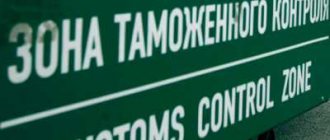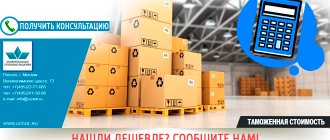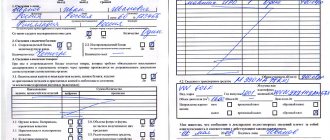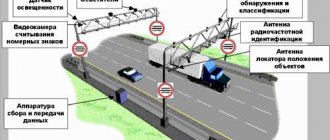According to the Customs Code of the EAEU, goods for personal use are goods intended for personal, family, household and other non-business needs of individuals, transported across the customs border of the Union in accompanied or unaccompanied luggage, by sending in international postal shipments or in any other way.
There are certain restrictions on the weight and value of such goods, within which you can avoid paying customs duties and often not declare the goods at all. These requirements are established by law by Decision of the Council of the Eurasian Economic Commission dated December 20, 2021 N 107 and determine both the list of permitted goods and import standards (limits), as well as features relating to the transportation of certain categories of goods for personal use.
Thus, this decision establishes the following restrictions on duty-free import in luggage for the following types of goods:
- goods for personal use (except alcohol and indivisible goods), imported by air - cost: up to 10,000 euros, weight: up to 50 kg;
- goods for personal use (except for alcohol and indivisible goods), imported by other, non-air, mode of transport - cost: up to 500 euros, weight: up to 25 kg;
- goods for personal use (except for alcohol and indivisible goods) imported by the carrier - cost: up to 200 euros, weight: up to 31 kg (from 01/01/2020);
- goods for personal use (except for alcohol and indivisible goods), sent by post - cost: up to 200 euros, weight: up to 31 kg (from 01/01/2020).
CUSTOMS CONTROL
During customs control, customs officials have the right:
- check documents;
- carry out inspection of goods or personal search (in exceptional cases);
- record goods;
- conduct an oral survey.
Personal customs inspection is carried out only by a written decision of the head of the customs authority or an official replacing him, if there are grounds to believe that the individual is hiding on his person and does not hand over currency or goods that are the subject of a violation of the law.
GREEN CORRIDOR system
The place of entry and exit to the “green corridor” is indicated by the inscriptions “Green channel” and “There are no goods subject to mandatory written declaration” (“Nothing to declare”) in Russian and English.
The movement of goods through the “green corridor” line at the entrance is considered a statement that the currency and goods being moved are not subject to mandatory declaration in writing and that there is no unaccompanied baggage. The passenger customs declaration is not completed and submitted. Customs control is carried out selectively.
"RED CORRIDOR" system
The entrance to the “red corridor” is indicated by the inscriptions “Red channel” and “Goods to declare” in Russian and English.
The “red” corridor is intended for declaring currency and/or goods in accompanied baggage, subject to mandatory written declaration, as well as for declaring unaccompanied baggage. A passenger customs declaration TD-6 is drawn up and submitted to the customs authority along with the documents necessary for customs purposes.
Import of personal goods by foreigners
Foreign individuals, when temporarily entering the territory of the EAEU, can transport personal items without completing any documents or paying customs duties. The only condition is that such an item must be included in the list of permitted goods established by Appendix No. 4 to the Decision of the EEC Council of December 20, 2021 No. 107.
This list, in particular, includes:
- personal clothing and belongings;
- mobile phones (no more than 2), computers (no more than 1) and other electronics for personal use;
- musical instruments;
- child seats (secured) and wheelchairs;
- Sports Equipment;
- Pets;
- necessary medical devices.
CUSTOMS REGULATIONS
EXPORT from the Russian Federation of CASH and traveler's checks
Without presenting documents and without entering information about currency into the passenger customs declaration, individuals have the right to export cash foreign currency and/or currency of the Russian Federation in an amount not exceeding the equivalent of 3,000 US dollars.
When an individual exports traveler's checks in a total amount not exceeding the equivalent of 10 thousand US dollars, the exported traveler's checks are not subject to customs declaration in writing;
When individuals export foreign currency and/or currency of the Russian Federation from 3,000 to 10,000 US dollars or traveler's checks in an amount exceeding the equivalent of 10,000 US dollars, these amounts must be declared in the passenger customs declaration.
Export of currency in an amount exceeding 10,000 US dollars is allowed in two cases:
- foreign currency was previously imported and is indicated in the customs declaration confirming the import;
- foreign currency was transferred and received through a bank, provided there is a document confirming the transfer of currency to the Russian Federation.
There are no restrictions on funds exported using a bank card. There is no need to declare a bank card.
Export by an individual of monetary instruments (bills of exchange; bank checks; securities in documentary form, certifying the issuer's obligation to pay funds, which does not indicate the person to whom such payment is made) is carried out subject to customs declaration in writing by submitting a passenger customs declaration.
IMPORTATION into the Russian Federation of CASH and traveler's checks
When an individual imports cash and/or traveler's checks in a total amount equal to or not exceeding the equivalent of 10 thousand US dollars, the imported cash and/or traveler's checks are not subject to customs declaration.
When an individual imports cash and/or traveler's checks in a total amount exceeding the equivalent of 10 thousand US dollars, the imported cash and/or traveler's checks are subject to customs declaration.
Import by an individual of monetary instruments (bills of exchange; bank checks; securities in documentary form, certifying the issuer's obligation to pay funds, which does not indicate the person to whom such payment is made) is subject to customs declaration in writing by submitting a passenger customs declaration.
LIST OF CASES OF MOVEMENT OF CURRENCY and TRAVELER'S CHECKS SUBJECT TO MANDATORY DECLARATION
Currency and traveler's checks transported across the customs border of the Russian Federation for personal use are subject to mandatory written declaration in the following cases:
- When importing into the Russian Federation cash foreign currency and (or) currency of the Russian Federation, as well as traveler's checks in an amount exceeding the equivalent of 10,000 US dollars, or foreign and (or) domestic securities in documentary form (regardless of the amount).
- When exporting from the Russian Federation cash foreign currency and (or) currency of the Russian Federation in an amount exceeding the equivalent of 3,000 US dollars.
LIST OF GOODS, the movement of which across the customs border of the Russian Federation is PROHIBITED
Weapons and weapons of all kinds, military models and ammunition for them.
Explosives, potent poisons.
Narcotic and psychotropic substances, as well as devices for their use.
Works of art and antiquities, antiques and objects of significant artistic, historical or cultural value.
Printed works and media that undermine the morality of the population.
Other items the import/export of which is prohibited in accordance with the legislation of the Russian Federation (see List No. 1).
LIST OF GOODS, the movement of which across the customs border of the Russian Federation is SUBJECT TO MANDATORY DECLARATION
Goods intended for personal use and transported across the customs border of the Russian Federation are subject to mandatory written declaration (including if, if necessary, there is a special permit - see List No. 2), in the following cases:
- IMPORTED goods, the total value of which exceeds the equivalent of 1,500 Euros, and/or the total weight of which exceeds 50 kilograms.
- IMPORTED alcoholic beverages in quantities exceeding 3 liters.
- IMPORTED tobacco products in quantities* exceeding 50 cigars, 100 cigarillos, 200 cigarettes, 0.25 kg of tobacco.
* In the case of importing only one type of tobacco product, the norm allowed for the import of this tobacco product is doubled.
- IMPORTED temporary precious stones and imported natural diamonds.
- EXPORTED with a total value of more than 25,000 US dollars: precious metals in any condition and form, precious stones: emeralds, rubies, sapphires and alexandrites, natural pearls, unique amber formations, diamonds; with the exception of temporarily exported jewelry, including those with inserts of precious stones.
- Caviar (black) of sturgeon fish, transported across the customs border, in quantities exceeding 250 grams of B.yzftyu (factory packaging), all types of sturgeon fish and products obtained from them - subject to a license from the Ministry of Economic Development of the Russian Federation.
- Cultural assets* - subject to permission from the Federal Service for Supervision of Compliance with Legislation in the Sphere of Mass Communications and Protection of Cultural Heritage (Rosokhrankultura).
*see List No. 3 and No. 4.
- Bowed musical instruments - if you have a Passport for the instrument and bow with the stamp of the Ministry of Culture of the Russian Federation. If the musical instrument was created more than 50 years ago, you will need a Certificate from the Ministry of Culture of the Russian Federation for the right to export and a passport for the instrument and bow.
- REPORTABLE state awards of the USSR or the Russian Federation - in the presence of documents confirming their awarding.v
- Animals permitted for import/export are subject to a veterinary certificate (Gosvetnadzor of the Russian Federation) and a CITES certificate (Ministry of Natural Resources of the Russian Federation).v
- Plants allowed for import/export are subject to a phyto-sanitary control act (State Plant Quarantine Service) and a CITES certificate (Ministry of Natural Resources of the Russian Federation).
- Weapons and ammunition, signaling devices, main parts of firearms, components of ammunition - with permission from the Ministry of Internal Affairs.
- Radio-electronic equipment (except for portable radiotelephones of cellular networks of federal and regional standards), including special technical equipment intended for secretly obtaining information - with permission from the State Communications Supervision Authority of the Russian Federation under the Ministry of Communications of the Russian Federation.
- Any cargo of animal origin - subject to written permission from the Chief State Veterinary Inspector of the Russian Federation.
- Goods carried in unaccompanied baggage.
When transporting goods subject to declaration in hand luggage and accompanied luggage, the TD-6 declaration is submitted simultaneously with the presentation of the goods.
If there is unaccompanied baggage, the application is submitted within 15 days from the date the carrier presents the goods to the customs authority at the place of residence or registration of the person.
LIST OF GOODS THAT CAN BE IMPORTED into the Russian Federation IN LIMITED QUANTITIES WITHOUT PAYING customs duties and taxes
Goods are imported into the customs territory of the Russian Federation free of charge if:
- The total value of imported goods does not exceed 1,500 Euros, and the total weight of which does not exceed 50 kilograms.
- The quantity of imported goods does not exceed the following quotas:
- Alcoholic drinks (including beer) 3 liters
Tobacco products: cigars, cigarillos, cigarettes, smoking tobacco 50 cigars, 100 cigarillos, 200 cigarettes, 0.25 kg of tobacco*
- Black sturgeon caviar in original packaging 250 grams
- Medicines in quantities necessary for personal use.
- Cultural property is imported by individuals into the territory of the Russian Federation with full exemption from customs duties and taxes.
*in the case of importing only one type of tobacco product, its duty-free rate is doubled.
LIST OF GOODS THAT CAN BE IMPORTED into the Russian Federation in limited quantities WITH MANDATORY PAYMENT of customs duties and taxes
- Goods whose cost and weight exceed the established quota (1,500 Euro, total weight 50 kg). In this case, a single rate of duties and taxes is applied - 30% of the customs value of goods, but not less than 4 Euros per 1 kilogram of weight in excess of the weight norm of 50 kilograms and (or) the cost norm of 1500 euros in equivalent.
- If the import of alcoholic beverages exceeds 5 liters inclusive. Customs duties are charged at a flat rate of 10 euros per 1 liter in excess of the quantitative norm of 3 liters.
RULES for appealing decisions of the CUSTOMS AUTHORITY
Any person has the right to appeal a decision, action (inaction) of a customs authority or its official, if such decision, action (inaction), in the opinion of the person, violated his rights, freedoms or legitimate interests, created obstacles for him to realize them or illegally imposed on him any duty.
A complaint against a decision, action (inaction) of a customs authority or its official may be filed within three months from the day when the person became aware or should have become aware of a violation of his rights or legitimate interests.
A complaint about the inaction of a customs authority or its official shall be filed within three months from the date of expiration of the established period for the customs authority or its official to make a decision or perform an action, the adoption or implementation of which is provided for by law. A complaint against a decision, action (inaction) of a customs authority or its official is submitted in writing and must be signed by the person filing the complaint.
The complaint must contain:
- name of the customs authority or position, surname, first name and patronymic of the customs authority official (if known), decision and/or action (inaction) that are being appealed;
- last name, first name, patronymic or name of the person filing the complaint, his place of residence or location;
- the essence of the appealed decisions, actions (inaction).
In accordance with customs legislation, when moving goods across the customs border whose value does not exceed 1.5 million rubles, a simplified procedure for appealing a decision, action (inaction) of a customs authority or its official may be applied. The simplified appeal procedure consists of a person filing an oral complaint to a higher-ranking customs official. Consideration of a complaint against a decision, action (inaction) of a customs official is carried out without delay, and a decision on it is made immediately.
Goods not for personal use
It should be remembered that there is a list of goods that under no circumstances can be classified as goods for personal use. Such goods are imported and declared in the general manner and duties or taxes must be paid on them, regardless of their weight or quantity. This list is established by Appendix No. 6 to the Decision of the EEC Council of December 20, 2021 No. 107 and contains various categories of goods prohibited for movement for personal purposes, such as:
- more than 250 g of sturgeon caviar;
- more than 5 kg of fish or crustaceans;
- alcohol-containing products with a volume of more than 5 liters (import is permitted only for adults);
- more than 200 g of tobacco products, or more than 200 cigarettes or 50 cigars;
- natural diamonds (except diamonds);
- non-passenger vehicles and engines for them;
- mechanical engineering mechanisms;
- medical equipment;
- gambling machines;
- military goods.
HELPFUL INFORMATION:
Helpline of the Federal Customs Service of Russia: (495) 449-7997
FOR VIOLATION OF CUSTOMS RULES, individuals are subject to administrative and criminal liability in accordance with the current legislation of the Russian Federation:
Article 188. Criminal Code of the Russian Federation SMUGGLING
- Smuggling, that is, the movement on a large scale across the customs border of the Russian Federation of goods or other items, except for those specified in part two of this article, committed in addition to or with concealment from customs control or with the fraudulent use of documents or means of customs identification, or associated with non-declaration or unreliable declaration - is punishable by a fine in the amount of one hundred thousand to three hundred thousand rubles, or in the amount of the wages or other income of the convicted person for a period of one to two years, or by imprisonment for a term of up to five years.
- Movement across the customs border of the Russian Federation of narcotic drugs, psychotropic substances, their analogues, tools and equipment that are under special control and used for the production and manufacture of narcotic drugs and psychotropic substances, potent, poisonous, poisonous, explosive, radioactive substances, radiation sources, nuclear materials, firearms, explosive devices, ammunition, weapons of mass destruction, their delivery vehicles, other weapons, other military equipment, as well as materials and equipment that can be used in the creation of weapons of mass destruction, their delivery vehicles, other weapons, other military equipment in respect of which special rules have been established for movement across the customs border of the Russian Federation, strategically important raw materials or cultural values, in respect of which special rules have been established for movement across the customs border of the Russian Federation, if this act was committed in addition to or with concealment from customs control or with deception the use of documents or means of customs identification, or is associated with non-declaration or false declaration, is punishable by imprisonment for a term of three to seven years, with or without a fine in the amount of up to one million rubles or in the amount of the wages or other income of the convicted person for a period of up to five years. and with or without restriction of freedom for a period of up to one year.
Article 291. Criminal Code of the Russian Federation GIVING BRIBE
- Giving a bribe to an official personally or through an intermediary is punishable by a fine in the amount of up to two hundred thousand rubles, or in the amount of the wages or other income of the convicted person for a period of up to eighteen months, or by correctional labor for a term of one to two years, or by arrest for a term of three to three years. up to six months, or imprisonment for up to three years.
- >Giving a bribe to an official for committing obviously illegal actions (inaction) is punishable by a fine in the amount of one hundred thousand to five hundred thousand rubles or in the amount of the wages or other income of the convicted person for a period of one to three years, or by imprisonment for a term of up to eight years.
Article 16.1. Code of Administrative Offenses of the Russian Federation ILLEGAL MOVEMENT OF GOODS AND (OR) VEHICLES AROSS THE CUSTOMS BORDER OF THE RUSSIAN FEDERATION
- Violation of the procedure for the arrival of goods and (or) vehicles into the customs territory of the Russian Federation by importing them in addition to checkpoints across the State border of the Russian Federation..., as well as the commission of actions directly aimed at the actual crossing of the customs border of the Russian Federation by goods and (or) vehicles at their departure from the customs territory of the Russian Federation in addition to checkpoints across the State Border of the Russian Federation or other places established in accordance with the legislation of the Russian Federation on the State Border of the Russian Federation, or outside the working hours of customs authorities or without the permission of the customs authority - entails the imposition of an administrative fine on citizens and legal entities in the amount of one-half to three times the value of goods and (or) vehicles that were the subjects of an administrative offense, with or without their confiscation or confiscation of the items of an administrative offense; for officials - from ten thousand to twenty thousand rubles.
- Hiding goods from customs control by using hiding places or other methods that make it difficult to detect goods, or by making some goods look like others when moving them across the customs border of the Russian Federation - entails the imposition of an administrative fine on citizens and legal entities in the amount of one-half to three times the value goods that were the subjects of an administrative offense, with or without their confiscation and confiscation of goods and (or) vehicles that were instruments for committing an administrative offense, or confiscation of the items of an administrative offense; for officials - from ten thousand to twenty thousand rubles.
- Reporting to the customs authority inaccurate information about the number of packages, their markings, the name, weight and (or) volume of goods upon arrival into the customs territory of the Russian Federation or upon departure from the customs territory of the Russian Federation of goods and (or) vehicles, or for obtaining permission for internal customs transit or for its completion, or when placing goods in a temporary storage warehouse by submitting invalid documents, as well as using for these purposes a counterfeit means of identification or a genuine means of identification relating to other goods and (or) vehicles - shall entail the imposition of an administrative fine on citizens in the amount of one thousand to two thousand five hundred rubles with or without confiscation of goods that were the subjects of an administrative offense, or confiscation of the subjects of an administrative offense; for officials - from five thousand to ten thousand rubles; for legal entities - from fifty thousand to one hundred thousand rubles with or without confiscation of goods that were the subjects of an administrative offense, or confiscation of the subjects of an administrative offense.
Article 16.2. Code of Administrative Offenses of the Russian Federation NON-DECLARATION OR INCORRECT DECLARATION OF GOODS AND (OR) VEHICLES
- Failure to declare in the established form (oral, written or electronic) goods and (or) vehicles subject to declaration, with the exception of cases provided for in Article 16.4 of this Code, shall entail the imposition of an administrative fine on citizens and legal entities in the amount of one half to two times the amount the cost of goods and (or) vehicles that were the subjects of an administrative offense, with or without their confiscation or confiscation of the items of an administrative offense; for officials - from ten thousand to twenty thousand rubles.
- Statement by the declarant or a customs broker (representative) when declaring goods and (or) vehicles of false information about goods and (or) vehicles, if such information served as the basis for exemption from payment of customs duties, taxes or for understating their amount, shall entail the imposition of an administrative fine on citizens and legal entities in the amount of one half to two times the amount of unpaid customs duties, taxes with or without confiscation of goods and (or) vehicles that were the subject of an administrative offense, or confiscation of the items of an administrative offense; for officials - from ten thousand to twenty thousand rubles.
- Statement by the declarant or customs broker (representative) when declaring goods and (or) vehicles of false information about goods and (or) vehicles, as well as submission of invalid documents, if such information and documents could serve as a basis for non-application of prohibitions and (or) restrictions established in accordance with the legislation of the Russian Federation on state regulation of foreign trade activities - entails the imposition of an administrative fine on citizens in the amount of one thousand five hundred to two thousand five hundred rubles with or without confiscation of goods and (or) vehicles that were the subject of an administrative offense or confiscation of items of an administrative offense; for officials - from ten thousand to twenty thousand rubles; for legal entities - from one hundred thousand to three hundred thousand rubles with or without confiscation of goods and (or) vehicles that were the subjects of an administrative offense, or confiscation of the items of an administrative offense.
Article 16.3. Code of Administrative Offenses of the Russian Federation FAILURE TO COMPLY WITH PROHIBITIONS AND (OR) RESTRICTIONS ON THE IMPORTATION OF GOODS INTO THE CUSTOMS TERRITORY OF THE RUSSIAN FEDERATION AND (OR) THE EXPORT OF GOODS FROM THE CUSTOMS TERRITORY OF THE RUSSIAN FEDERATION
- Failure to comply with the prohibitions and (or) restrictions on the import of goods into the customs territory of the Russian Federation and (or) export of goods from the customs territory of the Russian Federation established in accordance with the legislation of the Russian Federation on state regulation of foreign trade activities and not of an economic nature, except for the cases provided for in part 3 of Article 16.2 of this Code - entails the imposition of an administrative fine on citizens in the amount of one thousand five hundred to two thousand five hundred rubles; for officials - from ten thousand to twenty thousand rubles; for legal entities - from one hundred thousand to three hundred thousand rubles.
- Failure to comply with the prohibitions and (or) restrictions of an economic nature established in accordance with the legislation of the Russian Federation on state regulation of foreign trade activities on the import of goods into the customs territory of the Russian Federation and (or) the export of goods from the customs territory of the Russian Federation, except for the cases provided for in Part 3 of Article 16.2 of this Code - entails the imposition of an administrative fine on citizens in the amount of one thousand to two thousand rubles with or without confiscation of goods and (or) vehicles that were the subjects of an administrative offense, or confiscation of the subjects of an administrative offense; for officials - from five thousand to ten thousand rubles; for legal entities - from fifty thousand to one hundred thousand rubles with or without confiscation of goods and (or) vehicles that were the subjects of an administrative offense, or confiscation of the subjects of an administrative offense.
Article 16.4. Code of Administrative Offenses of the Russian Federation NON-DECLARATION OR INAUDIBLE DECLARATION OF FOREIGN CURRENCY OR CURRENCY OF THE RUSSIAN FEDERATION BY INDIVIDUALS
Non-declaration or false declaration by individuals of foreign currency or the currency of the Russian Federation, transported across the customs border of the Russian Federation and subject to mandatory written declaration, entails the imposition of an administrative fine on citizens in the amount of one thousand to two thousand five hundred rubles.










